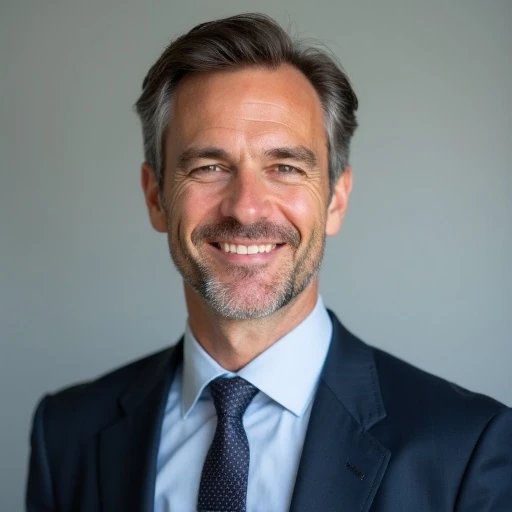Barnard College President Laura Rosenbury is facing significant criticism from students and faculty after publishing an opinion piece in The New York Times. In the article, she argued for the necessity of hosting controversial speakers on college campuses, a stance that many in her community found contradictory to the college's recent actions regarding on-campus speech and protest.
The op-ed, which appeared on Wednesday, was written in the context of the recent assassination of conservative activist Charlie Kirk. It quickly prompted a wide range of reactions, from support for open dialogue to accusations of hypocrisy and insensitivity from members of the Barnard and Columbia communities.
Key Takeaways
- Barnard President Laura Rosenbury's New York Times op-ed advocated for engaging with controversial speakers on college campuses.
- The article was published following the death of conservative activist Charlie Kirk and was initially titled “Charlie Kirk Challenged College Students. We Need More Like Him.”
- Many faculty and students criticized the op-ed, pointing to what they describe as the administration's suppression of student protests and speech.
- Supporters of the op-ed, including some student groups, agreed with the call for more open and respectful dialogue on campus.
The Op-Ed and Its Context
President Rosenbury's article was published in The New York Times on Wednesday. It initially carried the headline, “Charlie Kirk Challenged College Students. We Need More Like Him.” The newspaper later changed the title to “Now Is the Time for Colleges to Host Difficult Speakers.” It is not clear when the change was made.
The op-ed followed the September 10 shooting death of Charlie Kirk, the co-founder of the conservative advocacy group Turning Point USA, during an event at Utah Valley University. In her piece, Rosenbury argued that colleges must serve as platforms for nonviolent disagreement. She wrote, “higher education’s role is not to erase conflict but to channel it into dialogue, debate and learning.”
In a related email to the Barnard community titled “Disagreeing Better,” Rosenbury stated, “The purpose of higher education is not to protect us from difficult ideas, but to equip us with the intellectual courage, critical thinking, and empathy to engage them.”
Background on Charlie Kirk
Charlie Kirk was a prominent conservative activist who co-founded Turning Point USA, an organization that promotes conservative ideas on high school and college campuses. He was a vocal advocate for widespread gun ownership, stating in 2023 that it was “worth to have a cost of, unfortunately, some gun deaths every single year so that we can have the Second Amendment to protect our other God-given rights.”
Rosenbury addressed Kirk's controversial views in her article, arguing that his death should not be minimized because of them. She controversially wrote, “These attempts are like blaming a victim of sexual assault for going to a party wearing provocative clothing.”
Faculty and Student Reactions Emerge
The response from the Barnard community was swift and largely critical. Many faculty members and students expressed feelings of shock and frustration, arguing the president's words did not align with her administration's actions.
Taylor Carman, a philosophy professor at Barnard, described two parts of the op-ed as “particularly shocking.” In a statement, he noted the irony of Rosenbury praising another university for inviting Kirk while, in his view, “Barnard has been suppressing and punishing peaceful political discourse for the past two years.”
“The op-ed insists that ‘educators and students must face ideas we find offensive and speakers whose words cause pain.’ Given Barnard’s constant emphasis on good manners and protecting people’s feelings, I find that utterly baffling,” Carman wrote.
Debbie Becher, an associate professor of sociology, argued that the “crisis of speech and expression” at Barnard was created by the administration itself. She pointed to policies like the ban on door signage in residence halls and increased security as measures that stifle learning.
Students also voiced their disapproval. Irlene Jeon, a first-year student, told reporters she was “embarrassed” by the op-ed. Another student, Maya O’Connell, sent an email directly to the president's office, expressing her disappointment and questioning the comparison of gun violence to sexual assault.
A Campus Divided on Free Speech
The controversy surrounding the op-ed highlights a deep divide on campus regarding the principles of free speech and the administration's role in regulating it. This issue has been a focal point of tension for months.
Recent Campus Events
In her article, Rosenbury referenced recent campus protests, including disruptions of a class on the history of modern Israel, which resulted in the expulsion of two Barnard students. She also mentioned sit-ins at Milbank Hall and the Milstein Center, where the New York Police Department arrested nine individuals following a bomb threat during a demonstration.
Free Speech Ranking
The Foundation for Individual Rights and Expression (FIRE) recently released its 2026 College Free Speech Rankings. Out of 257 institutions, Barnard College was ranked last, and Columbia University was ranked second to last, indicating significant student concern about the climate for free expression on campus.
In April 2024, Barnard faculty passed a historic vote of no confidence in President Rosenbury. The vote came after more than 50 students were suspended for participating in the “Gaza Solidarity Encampment” on Columbia's campus.
Support for Rosenbury's Position
Not all reactions were negative. Christina Ma, a Barnard student who founded a chapter of Turning Point USA at Columbia, expressed gratitude for the op-ed. “I agree with her that we do need more people like Charlie Kirk,” Ma said, clarifying she meant people who are willing to engage in dialogue with those who disagree with them.
The newly formed Columbia Open Discourse Alliance, a student group advocating for open debate, also shared the article on social media. The group's leadership stated their enthusiastic support for the sentiment expressed by President Rosenbury.
Ongoing Debate Over Campus Dialogue
The op-ed has intensified an ongoing conversation at Barnard and Columbia about the boundaries of acceptable speech and the methods of protest. Critics point to what they see as a contradiction between the president's call for open dialogue and the administration's disciplinary actions against student activists.
An anonymous non-tenured professor raised concerns about Turning Point USA's “Professor Watchlist,” which targets faculty members for allegedly advancing “leftist propaganda.” The list currently includes two faculty from Barnard and 25 from Columbia. The professor noted a lack of faculty involvement in the administration's dialogue initiatives.
Student activist groups like Columbia University Apartheid Divest (CUAD) also condemned the op-ed. The group highlighted the disciplinary actions taken against dozens of students since last fall for speaking out on political issues.
In her email to the campus, President Rosenbury concluded by encouraging the community to “recommit to open inquiry and debate.” She emphasized that confronting harmful ideas is best done not with “silence or violence, but by exposing them to the scrutiny, dialogue, and debate that a liberal arts education makes possible.” The strong reactions suggest the community remains deeply divided on how to achieve that goal.





